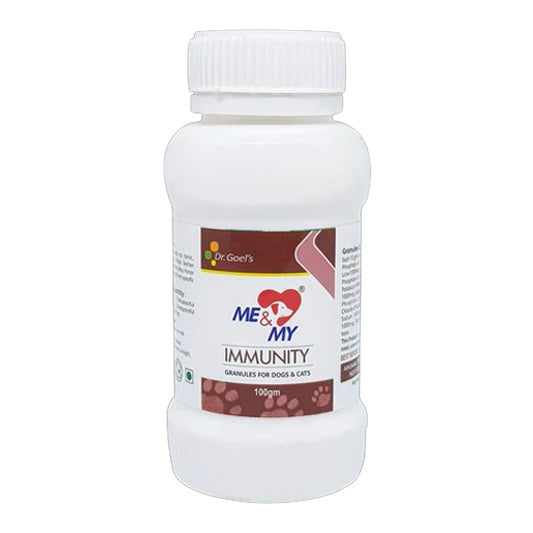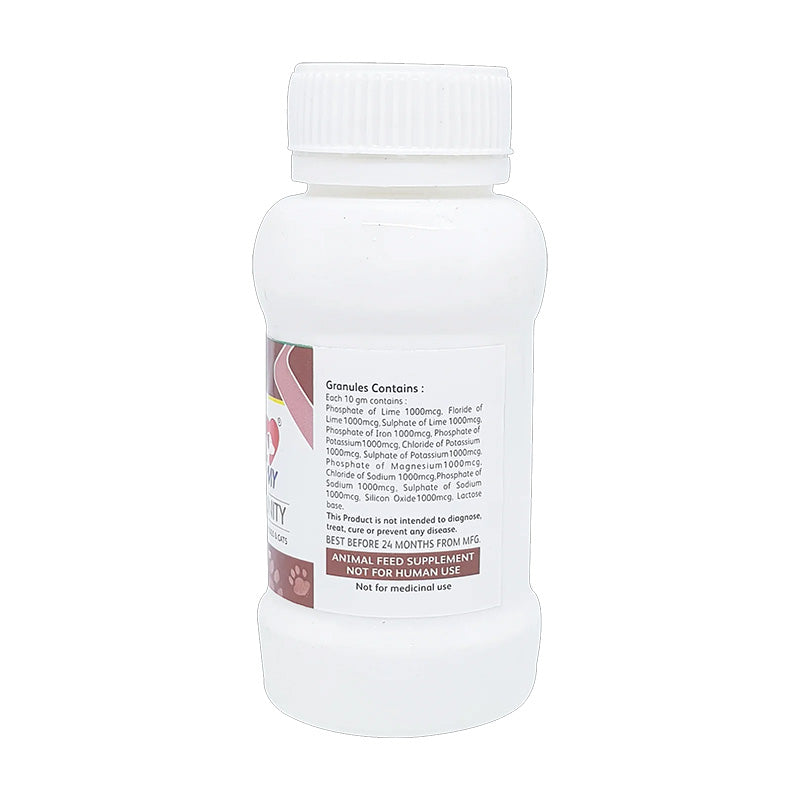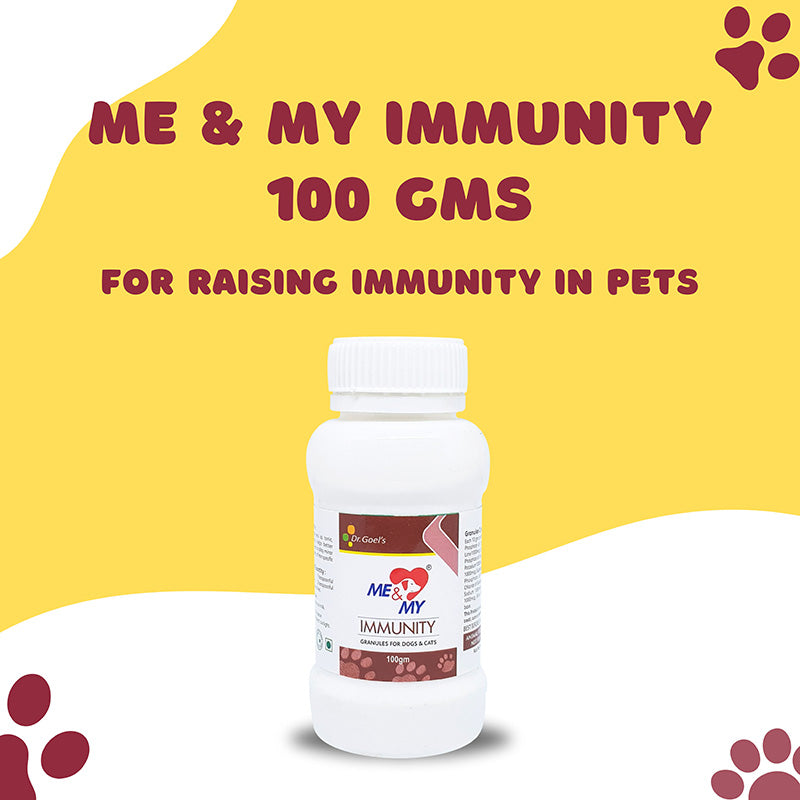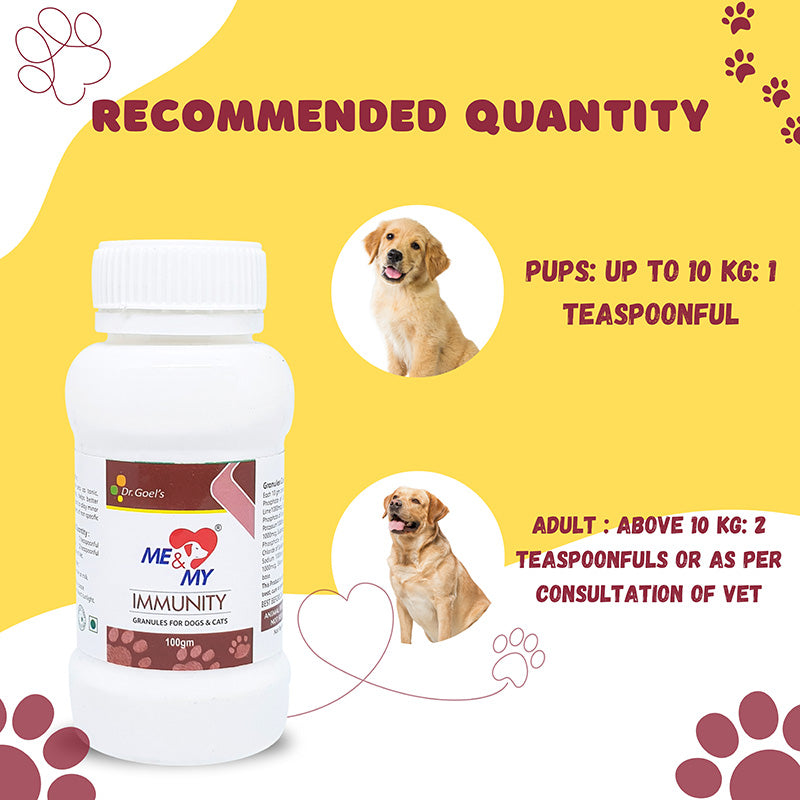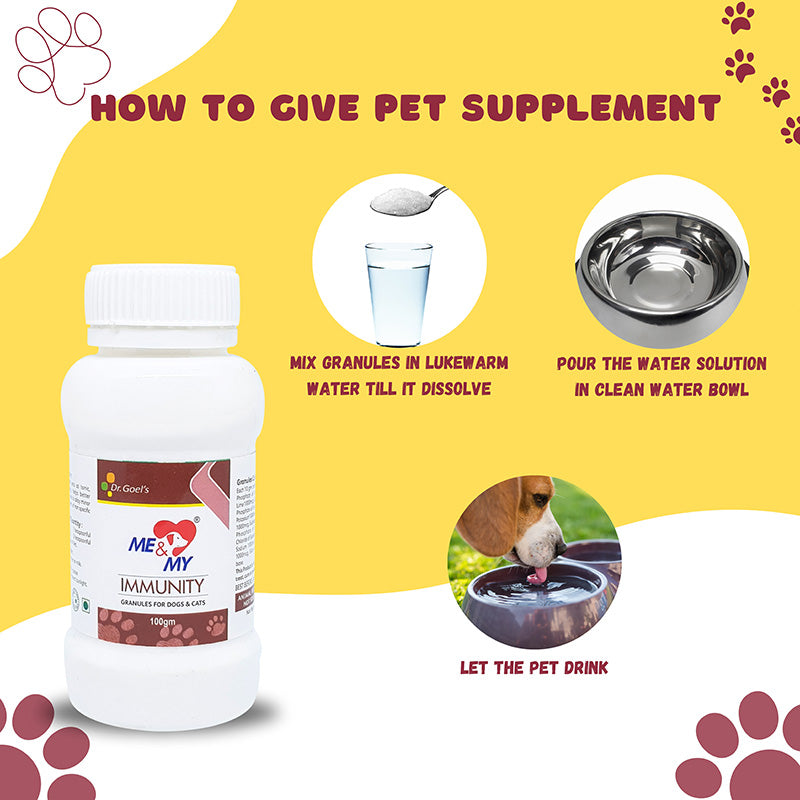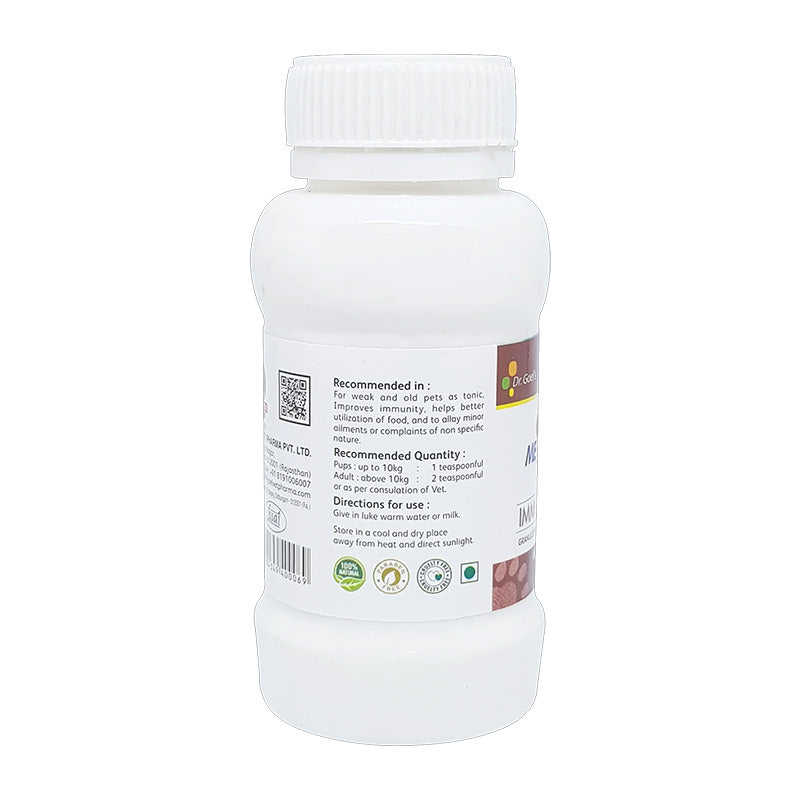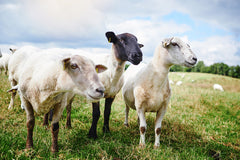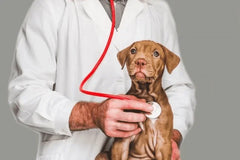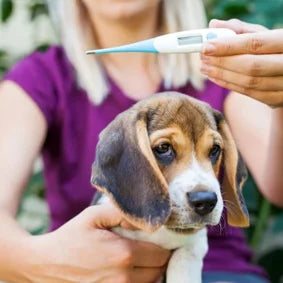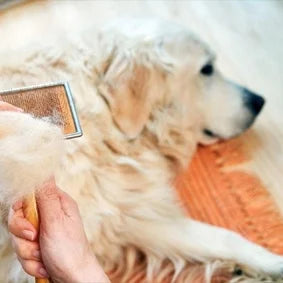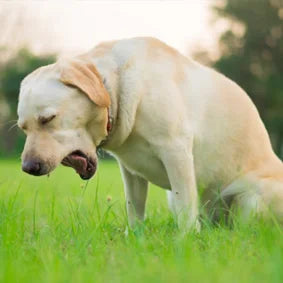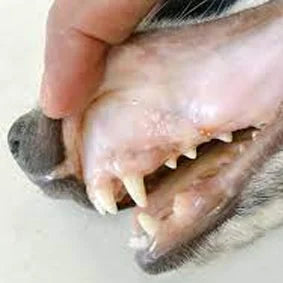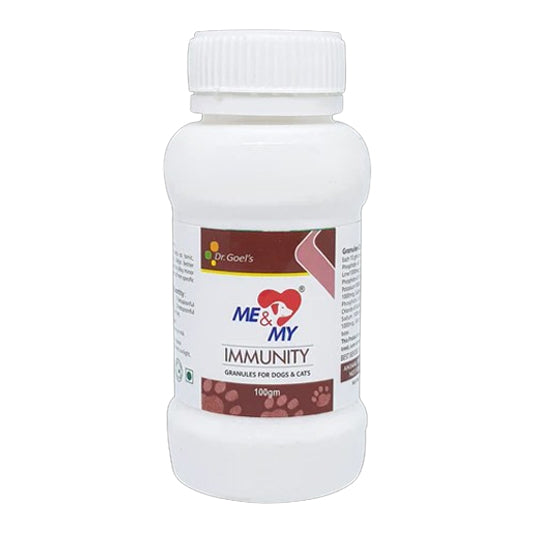Low immunity in pets can be a concerning issue as it leaves them more vulnerable to various diseases, infections, and other health problems. Just like humans, animals rely on a strong immune system to defend against pathogens and maintain overall health. However, here are some general factors that can contribute to low immunity in pets:
Here are four common disease related to low immunity –
-
Poor nutrition
A balanced diet is crucial for maintaining a healthy immune system. Nutritional deficiencies can weaken the immune response in pets. Ensure that your pet receives appropriate and high-quality food tailored to their specific needs.
-
Stress
Chronic stress can negatively impact a pet's immune system. Stressors can include changes in the environment, routine, or social dynamics. Minimise stress as much as possible and provide a safe and comforting environment for your pet.
-
Lack of exercise
Regular physical activity is essential for pets to stay fit and maintain a strong immune system. Lack of exercise can lead to obesity, which can further compromise the immune system.
-
Age
Older pets may have a naturally weaker immune system due to the ageing process. Their immune response may not be as robust as that of younger animals.
Tips for boosting immunity in pets
To boost your pet’s immunity, prioritize a balanced diet and regular exercise. Proper nutrition and physical activity strengthen their body and immune system. Tailor activities to their age, breed, and health.
Symptoms of poor growth in pets
The symptoms of poor growth in pets can vary depending on the underlying cause and the specific condition affecting their immune system. Here are some common symptoms that may indicate low growth in pets:
-
Parvovirus ( Parvo )
This highly contagious canine illness attacks puppies aged between 12 weeks and 3 years. Transmitted through bodily secretions and unvaccinated dogs, canine parvovirus is easily passed on, though most dogs should be vaccinated against it starting at six to eight weeks, then again every three weeks until they are four months old.
-
Vomiting (and diarrhea)
If a puppy is suffering from either of these nasties, the first thing to rule out is intestinal parasites. If these are not the causes of vomiting or diarrhea, the pooch has probably just eaten or licked something he shouldn’t have. Other causes could be one of the diseases listed above.
-
Distemper
The vaccination against the canine distemper virus is quite effective. The first vaccination takes place at six to eight weeks and again after nine weeks, "and when puppies have had one or two vaccines, they are immune."
-
Kennel Cough
Bacterial infection or canine para-influenza viruses, both of which are airborne, cause kennel cough in dogs, also known as infectious trachea bronchitis. Puppies can be vaccinated against kennel cough starting at six to eight weeks and then every six to 12 months after that, though the vaccine doesn’t necessarily protect against the disease but does lead to milder symptoms.
-
Adenovirus
Adenovirus in dogs causes infectious canine hepatitis; it’s rarely seen these days because of the efficacy of vaccines. Often, the adenovirus vaccine is given with the canine distemper vaccine.
-
Leptospirosis
This bacterial disease can affect the kidneys and the liver and is transmitted through contaminated water and infected urine. A puppy can be vaccinated against leptospirosis at 10 to 12 weeks, then again at 13 to 15 weeks.
Trusted by Veterinarians
“As a veterinarian, I am thrilled to endorse Dr. Goel Vet Pharma’s homeopathic products for our furry friends. Their commitment to advancing homeopathic veterinary medicine is evident in the exceptional quality of their products. The innovative solutions they provide have significantly enhanced our ability to care for our animal patients, ensuring optimal health outcomes. I highly recommend Dr. Goel Vet Pharma’s products to pet parents for their unwavering dedication to the well-being of pet animals and the invaluable support they offer to the veterinarian community.”
– Dr. Sakshi Sharma (B.V.sc. & A.H. M.V.Sc , NET)
Treat your Pet from Low Immunity Problems withDr. Goel’s Canasule No. 1
Canasule No. 1 is a first aid kit. For all types of dog and cat problems it provides support to the immunity to fight against all types of infection irrespective of cause, thus helpful to the system to overcome the situation, which usually comes presciently at night or when it is hard to get any medical aid. Canasule No. 1 is also helping puppies and kittens in their first year of life to grow uneventfully in respect of disease because it provides major support to the immune system.
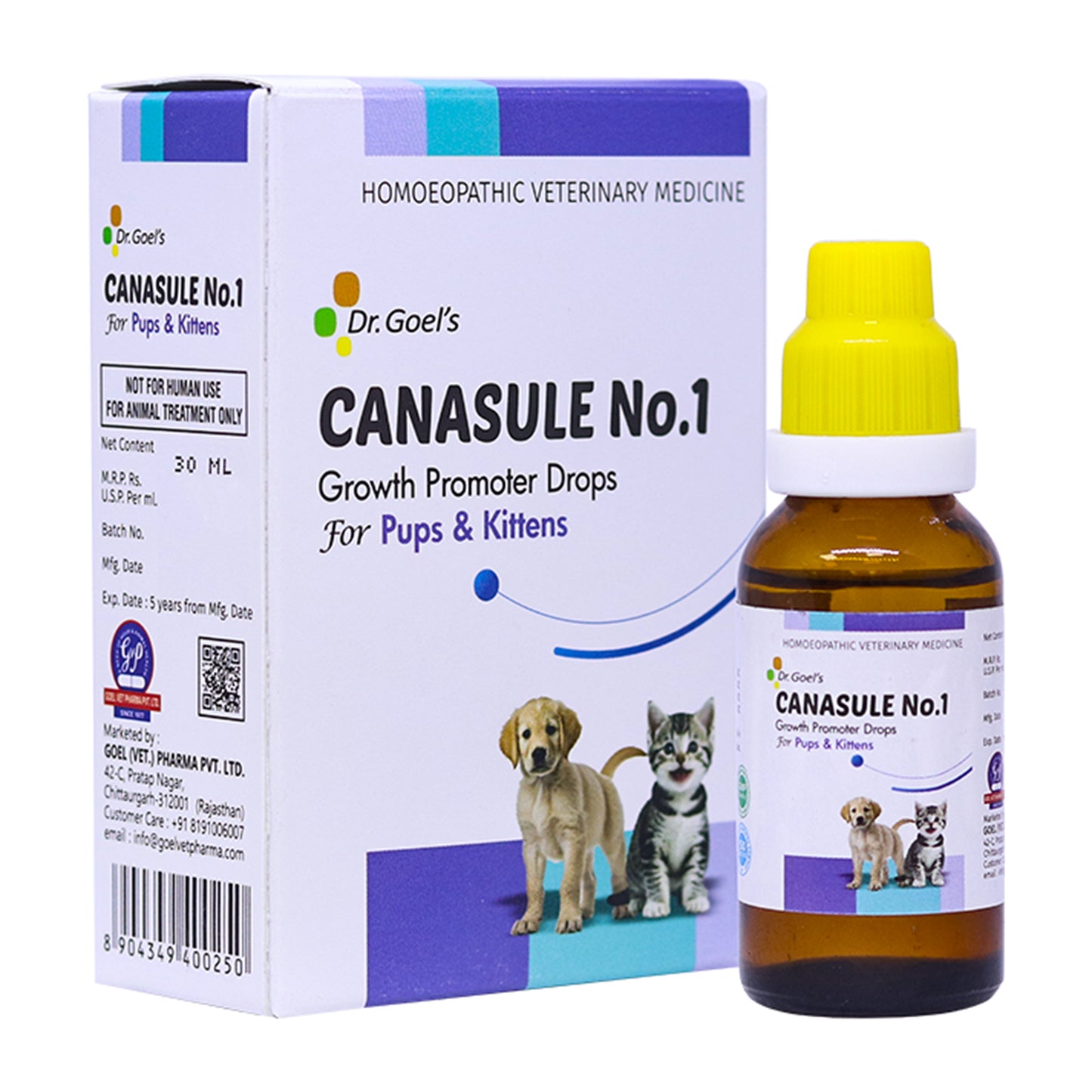
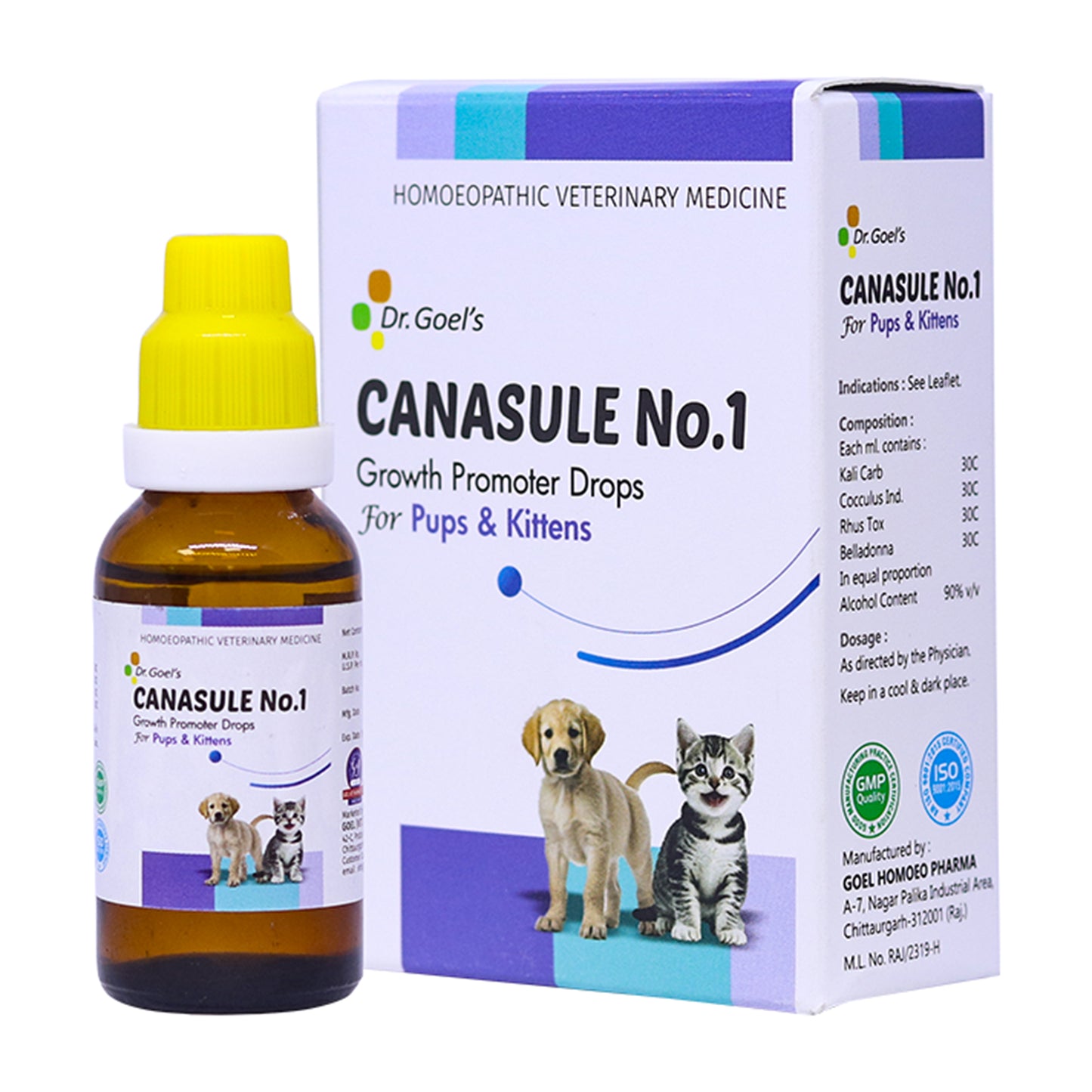
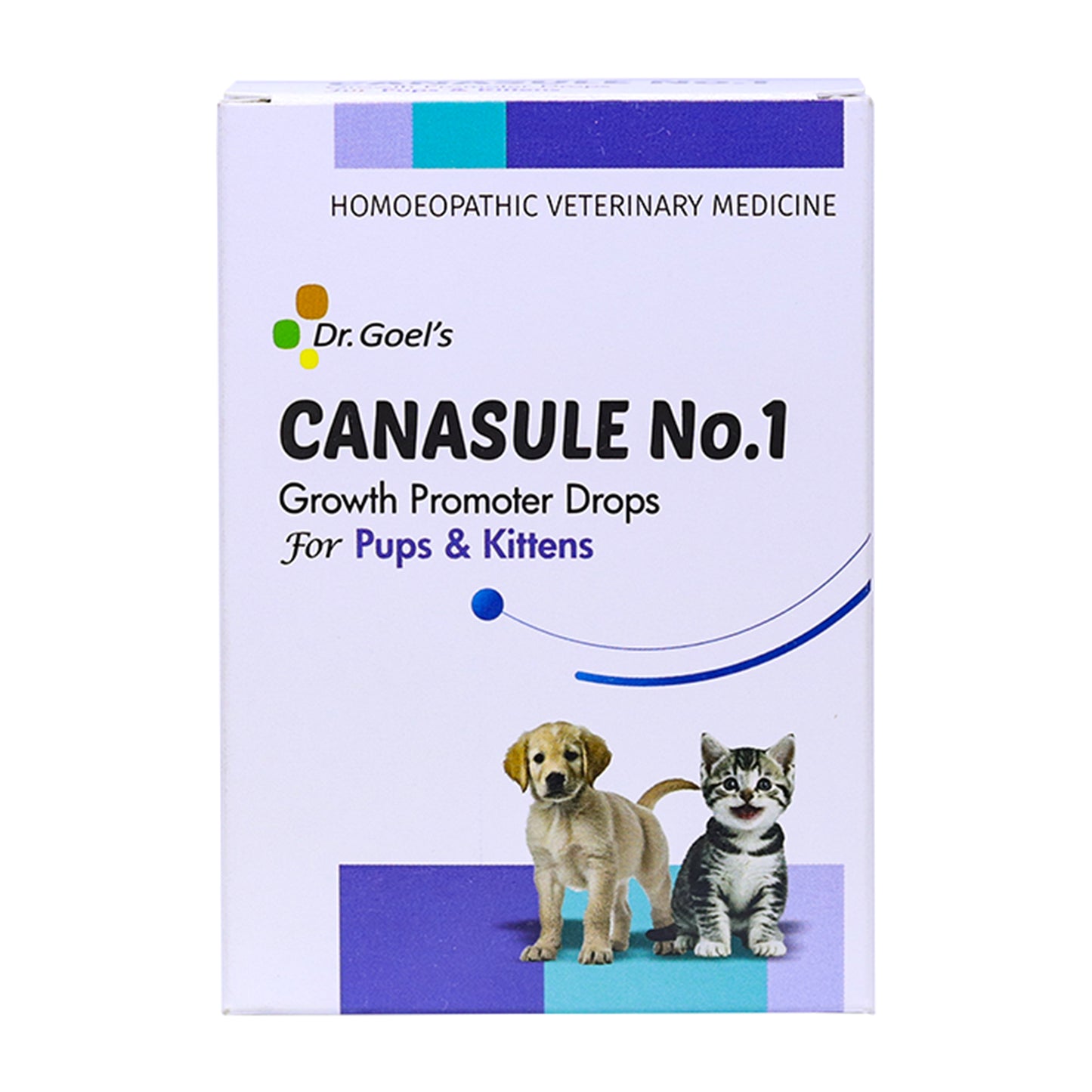
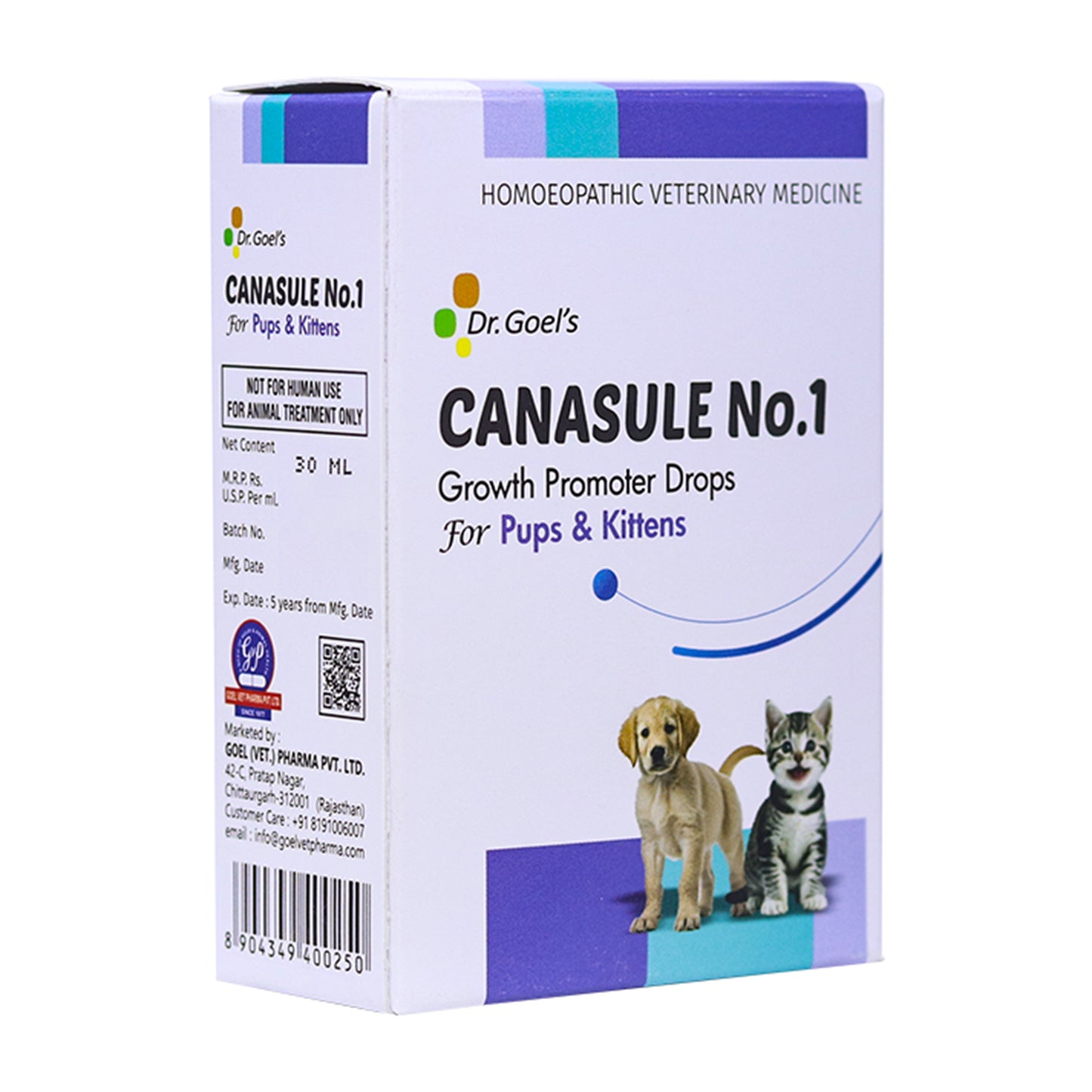
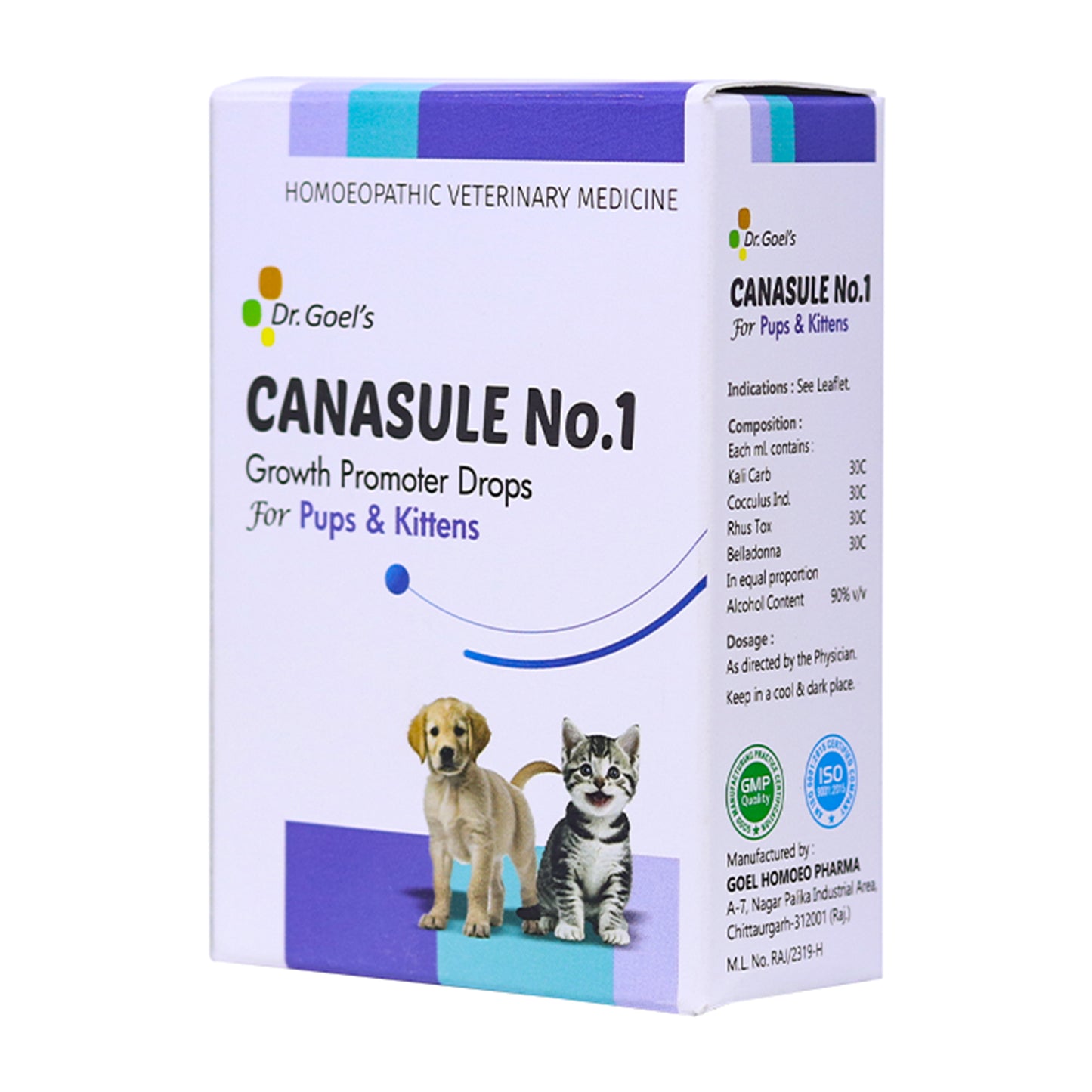
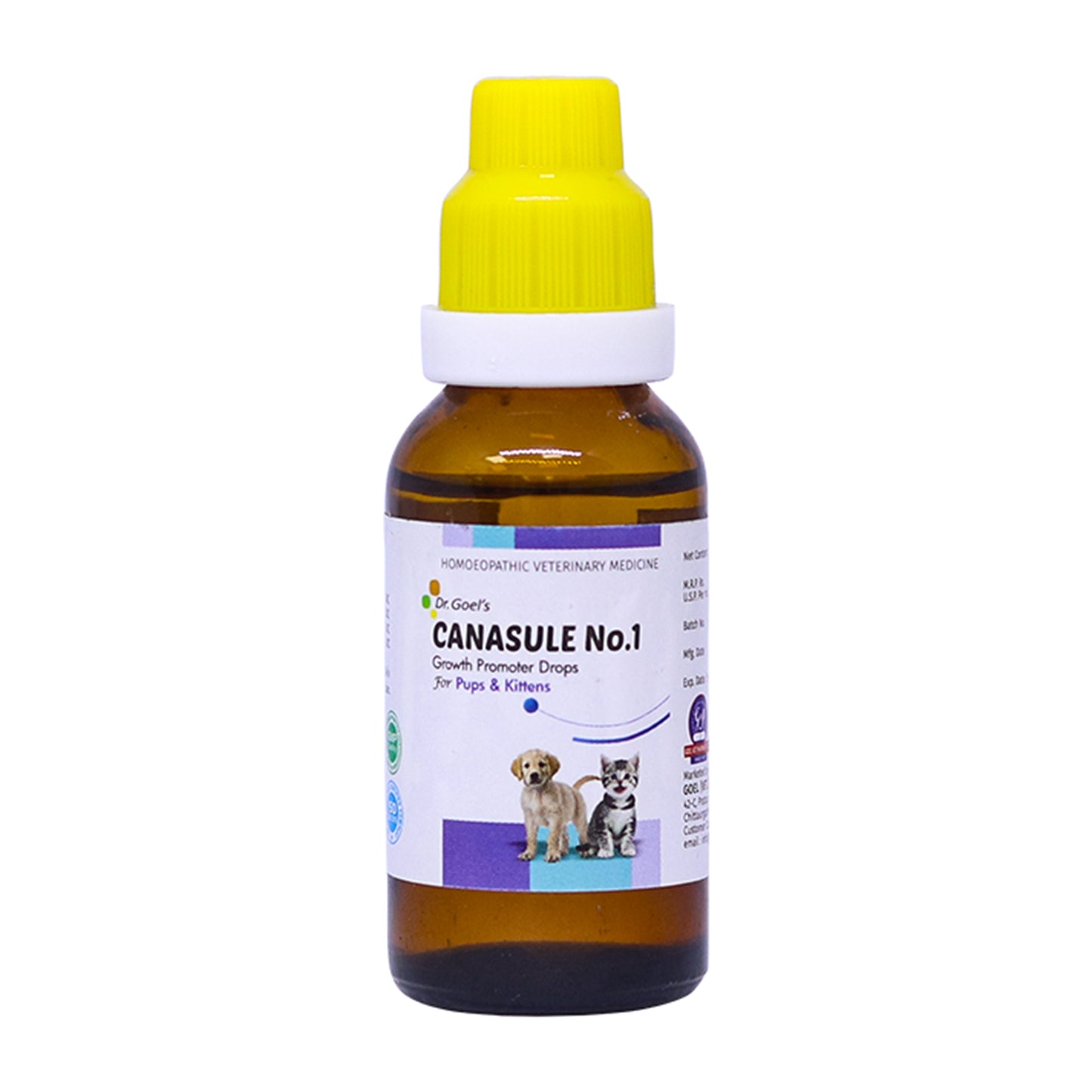
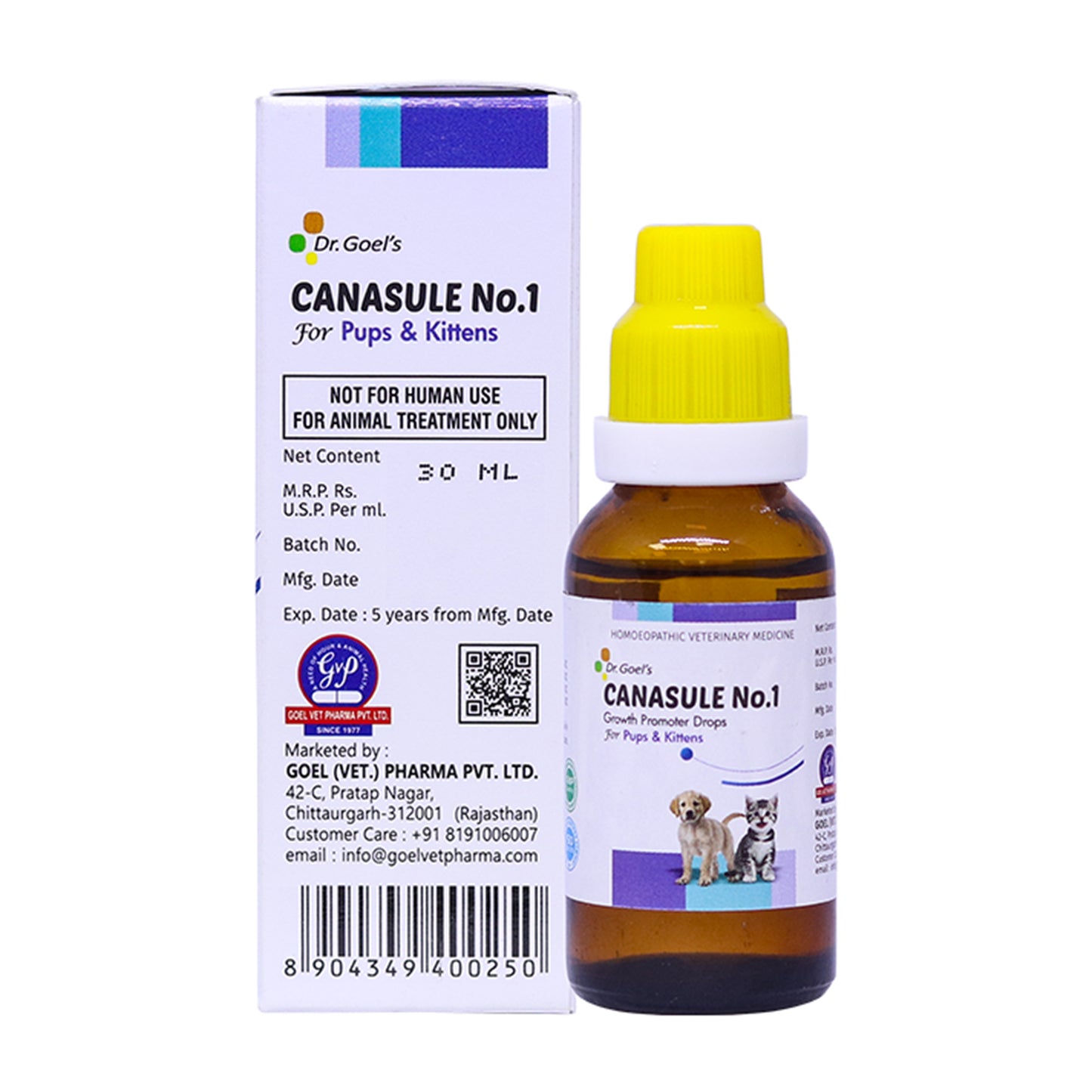
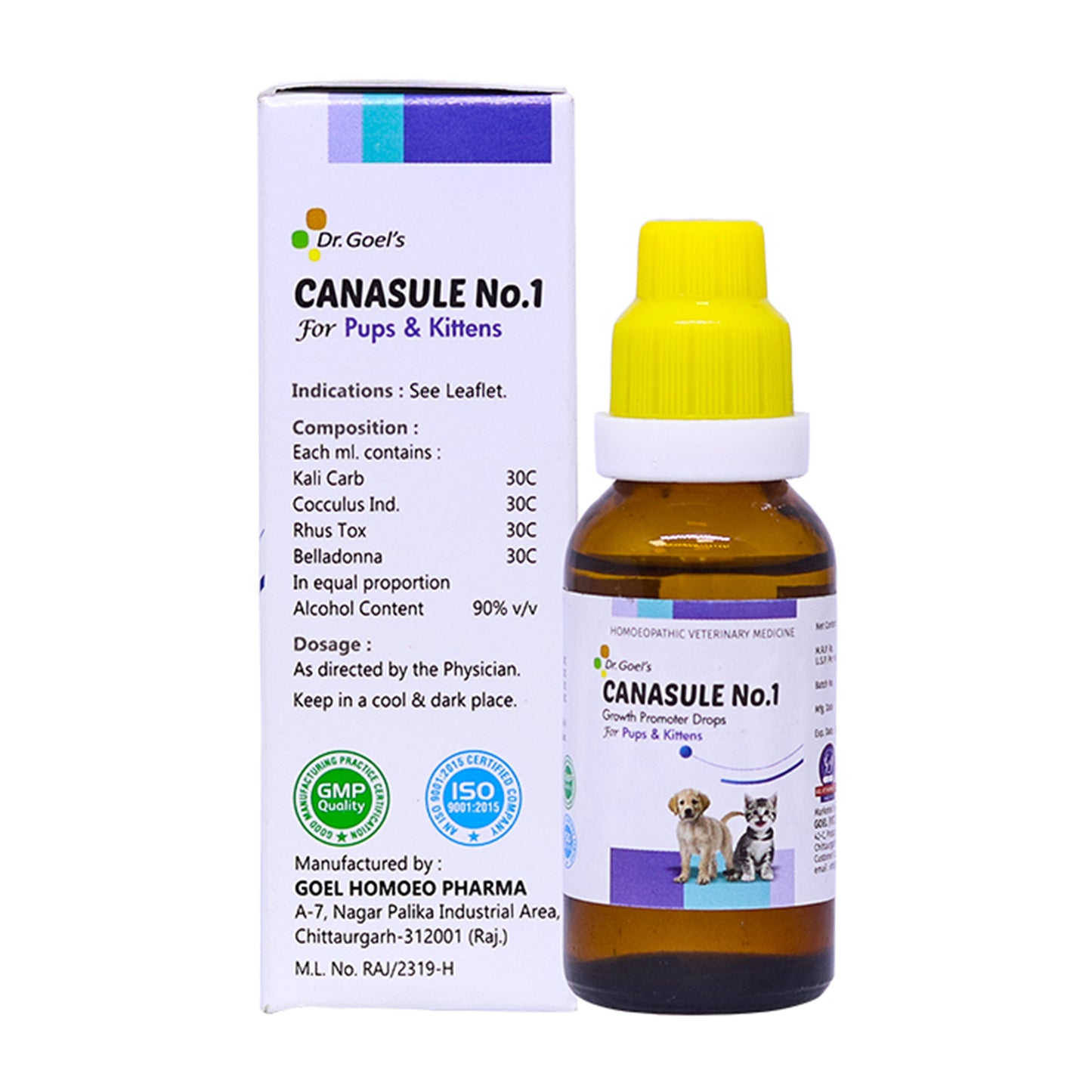
Me & My Immunity in Pets
GRANULES FOR PETS (For Raising Immunity in Pets)
Me & My IMMUNITY Pet Supplement is a unique formula of valuable supplements for Dogs and cats that help in maintaining and raising the IMMUNITY of your lovable pets. It is made for weak and old pets as it improves immunity, helps better utilization of food, and allay minor ailments or complaints of a non-specific nature. It also gives strength to the body’s mechanism for fighting against germs of all kinds.
